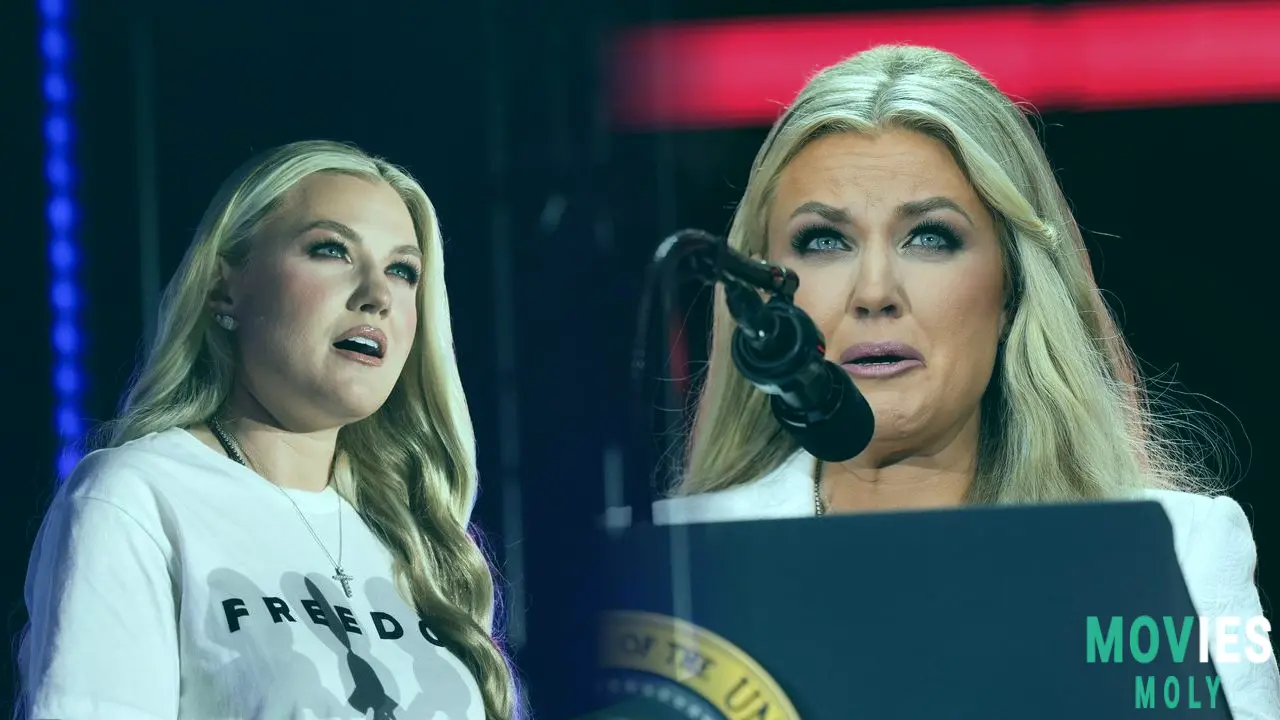The widow of conservative activist Charlie Kirk has revealed she turned down an offer to receive a public apology from late-night host Jimmy Kimmel, following his controversial remarks and a brief suspension of his show.
TL;DR
- Erika Kirk declined an offer facilitated by Sinclair Broadcast Group for a public apology from Jimmy Kimmel.
- Kimmel's show was temporarily suspended after he linked Charlie Kirk's alleged assassin to the "MAGA gang."
- Kimmel later clarified his comments, expressing remorse but did not issue a direct "sorry" to Kirk's widow.
Imagine the tension in a late-night studio when a host steps into a political firestorm. That's exactly what happened on September 15, 2025, when Jimmy Kimmel, during his "Jimmy Kimmel Live!" monologue, addressed the recent assassination of conservative activist Charlie Kirk. Kirk had been fatally shot just five days earlier, on September 10, during his "Prove Me Wrong" debate at Utah Valley University.
Kimmel’s remarks quickly ignited controversy. He stated, "We hit some new lows over the weekend with the MAGA gang desperately trying to characterize this kid who murdered Charlie Kirk as anything other than one of them and doing everything they can to score political points from it." This commentary, coming so soon after a national tragedy, drew immediate criticism for appearing to politicize the incident and link the alleged assassin, 22-year-old Tyler Robinson, to a broader political movement.
The fallout was swift and significant. ABC affiliates, including major station owners Nexstar Media Group Inc. and Sinclair Broadcast Group, refused to air "Jimmy Kimmel Live!". This unprecedented move ultimately led Disney, ABC's parent company, to temporarily suspend the show for a week, from September 17 to September 23. Disney cited a need "to avoid further inflaming a tense situation at an emotional moment for our country," acknowledging some comments were "ill-timed and thus insensitive."
Kimmel's Return and a Nuanced Public Clarification
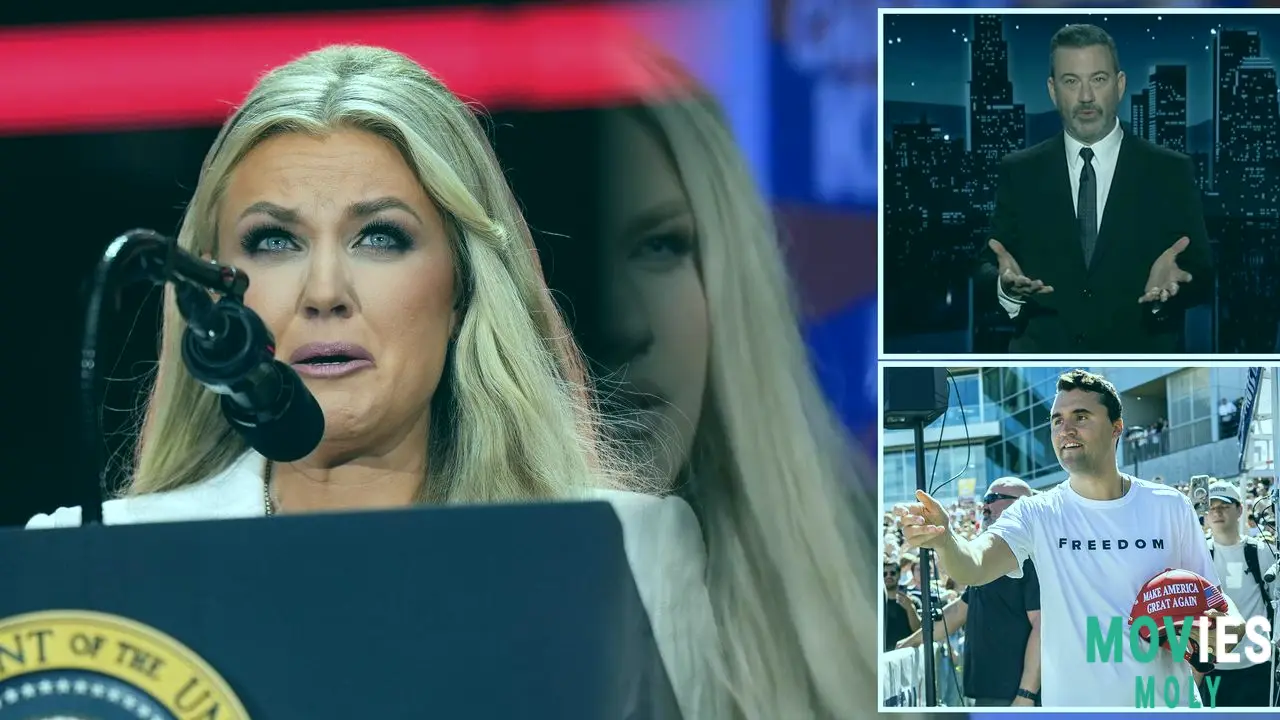
Upon his return to the airwaves on September 23, Kimmel addressed the suspension and the backlash in an 18-minute monologue. He aimed to clarify his original comments, stating, "It was never my intention to make light of the murder of a young man. I don’t think there’s anything funny about it." He added that his intent was not "to blame any specific group for the actions of what was obviously a deeply disturbed individual," suggesting that was "the opposite of the point I was trying to make."
Kimmel further acknowledged that his comments "felt ill-timed or unclear or maybe both" to some, and expressed understanding for those who felt he pointed a finger. He explicitly stated, "I don't think the murderer who shot Charlie Kirk represents anyone. This was a sick person who believed violence was a solution, and it isn't ever." The episode garnered significant attention, bringing in 6.26 million viewers, marking his best ratings in years. Source: [Newsweek, "Erika Kirk Addresses Jimmy Kimmel Controversy in Emotional Jesse Watters Interview," November 4, 2025]
Interestingly, during this return monologue, Kimmel also reflected on Erika Kirk’s powerful address at her husband’s funeral, where she had offered forgiveness to the assassin. He called her act "a selfless act of grace" and "an example we should follow," expressing how it "touched me deeply." However, despite this reflection and clarification, Kimmel notably did not utter a direct "sorry" to Erika Kirk for his initial controversial remarks.
The Unspoken Apology: Erika Kirk's Firm Stance
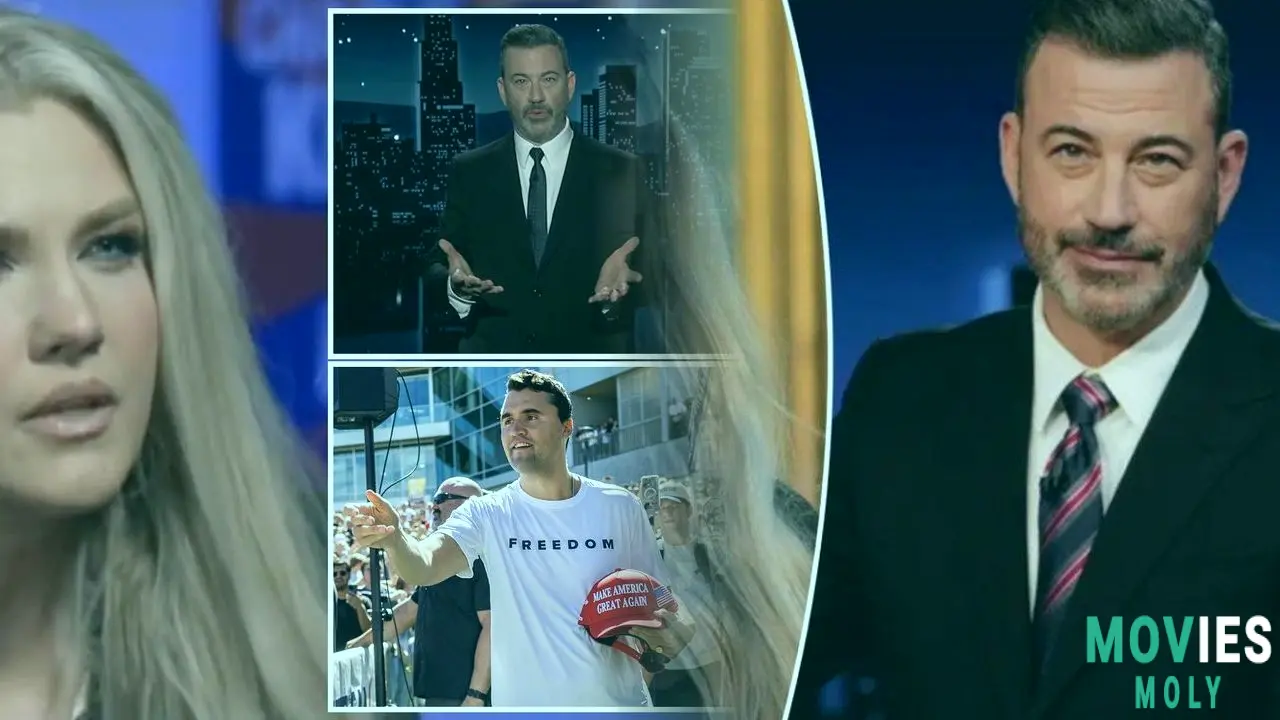
Fast forward to early November 2025, when Erika Kirk, in her first media interview since her husband’s death, shed new light on the aftermath of the Kimmel controversy. Speaking with Fox News' Jesse Watters for an interview set to air on November 5, she revealed a surprising behind-the-scenes effort by Sinclair Broadcast Group. Sinclair, one of the major ABC affiliate owners that had initially refused to air Kimmel’s show, reached out to her team.
Their question was direct: "Do you want Jimmy to give you an apology? Do you want to be on a show? How can we make it right?" It was an offer to mediate a public apology, likely designed to "make it right" after the significant media disruption. But Erika Kirk’s response was unequivocal.
"I told them thank you, we received their note. This is not our issue. It's not our mess," Kirk told Jesse Watters. "If you wanna say I'm sorry to someone who's grieving, go right ahead. But if that's not in your heart, then don't do it. I don't want it. I don't need it."
— Erika Kirk, Fox News interview with Jesse Watters, November 4, 2025. Source: [Deseret News, "Erika Kirk says she doesn’t want an apology from Jimmy Kimmel," November 4, 2025]
She emphasized that if Kimmel had asked her directly, she would have given him the same answer. Her refusal highlights a deeply personal perspective on grief and reconciliation, prioritizing sincerity over a performative public gesture. For Kirk, who has since stepped up to lead Turning Point USA, the organization her late husband co-founded, her focus appears to be elsewhere, on processing her loss and continuing her husband's work.
The Power of Affiliates and the Broader Media Landscape Impact
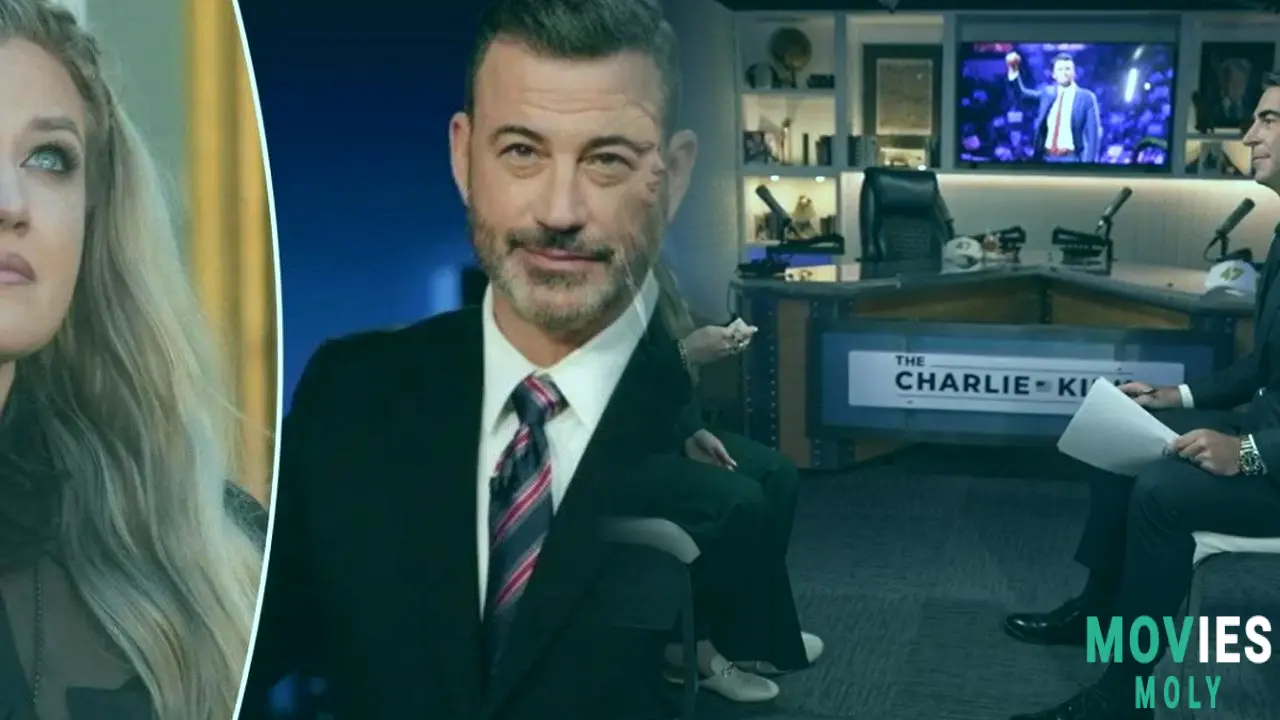
This incident vividly demonstrates the significant power held by major broadcast affiliate groups like Sinclair and Nexstar. Their collective decision to preempt "Jimmy Kimmel Live!" put direct pressure on Disney and ABC, ultimately leading to the show’s suspension. Sinclair even went further, proposing measures to ABC "to strengthen accountability, viewer feedback, and community dialogue, including a network-wide independent ombudsman." Source: [The Hollywood Reporter, "Charlie Kirk’s widow offered personal apology after Kimmel controversy," November 4, 2025]
While ABC and Disney didn't adopt these specific proposals, Sinclair's proactive involvement, extending to offering to broker an apology for Erika Kirk, underscores the affiliate groups' leverage in steering network decisions and responding to public outcry. This kind of influence illustrates a unique dynamic in the broadcast industry, where regional station owners can significantly impact national programming choices.
Of course, not everyone viewed Kimmel's initial comments identically. Some viewers and commentators defended his right to make provocative political statements within the context of late-night satire. For them, Kimmel's initial comments were a critique of political maneuvering rather than an insult to the deceased. However, the timing and phrasing clearly crossed a line for many, including the broadcast affiliates, leading to an swift and impactful response.
Consider, for example, a viewer who consistently watches late-night shows for their sharp political commentary. They might have seen Kimmel's initial remarks as just another instance of a host taking aim at perceived political opportunism. But for others, especially those grieving or closely impacted by the tragedy, the perceived lack of reverence immediately after a public assassination overshadowed any intended political critique. This highlights the inherent trade-off in public commentary: the quest for political impact versus the need for universal human sensitivity during moments of tragedy.
Navigating Grief and Public Discourse in the Wake of Tragedy
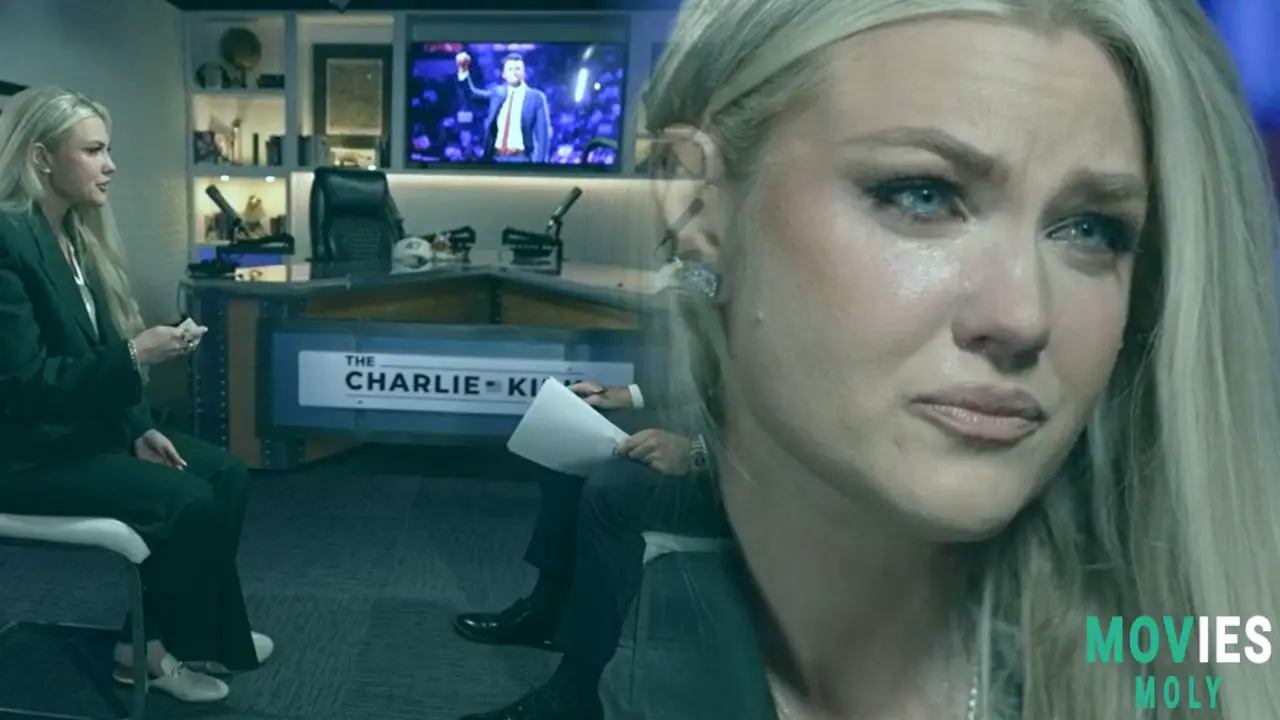
The entire episode brings into sharp focus the complex intersection of public grief, political commentary, and media responsibility. When a public figure like Charlie Kirk is assassinated, the event immediately transcends personal tragedy, becoming a subject of national discourse and often, political interpretation. For someone like Erika Kirk, navigating personal loss under such intense public scrutiny presents an unimaginable challenge.
Her decision to decline a potentially high-profile public apology underscores a profound personal conviction. She prioritizes genuine feeling over orchestrated public relations, suggesting that an apology not "in your heart" holds no value, particularly in the depths of grief. This stance stands as a powerful statement about authenticity in a world often dominated by performative gestures.
The saga also serves as a potent reminder for public figures and media outlets. The rapid global spread of information and opinion means words carry immense weight. Striking a balance between free speech, satirical commentary, and fundamental human empathy, especially in the immediate aftermath of a tragedy, remains a delicate and often contentious challenge for all involved in public discourse.
Frequently Asked Questions About the Jimmy Kimmel Controversy
- When did Charlie Kirk’s assassination occur? Charlie Kirk was assassinated on Wednesday, September 10, 2025, at Utah Valley University.
- When was Jimmy Kimmel’s show suspended? "Jimmy Kimmel Live!" was temporarily suspended from September 17 to September 23, 2025, following his controversial remarks.
- What were Kimmel's controversial comments? Kimmel commented on September 15, 2025, suggesting that the alleged assassin, Tyler Robinson, was connected to the "MAGA gang," and criticized efforts to characterize him otherwise.
- Where can I watch Erika Kirk’s full interview? Erika Kirk’s full interview with Jesse Watters aired on Wednesday, November 5, 2025, at 8 p.m. ET on "Jesse Watters Primetime" on Fox News.
Key Takeaways from This Media Firestorm:
- Authenticity in apologies matters more than formality, especially in the context of personal tragedy.
- Broadcast affiliate groups wield significant power in network programming decisions and public accountability.
- Public discourse, particularly concerning grief and politics, requires immense sensitivity and careful consideration of timing and phrasing.
- Clarifying intentions after controversial remarks is crucial, but it doesn't always replace a direct apology in the eyes of those affected.
- The intersection of late-night comedy and real-world tragedies remains a challenging tightrope walk for hosts and networks alike.
Sources:
- Deseret News. "Erika Kirk says she doesn’t want an apology from Jimmy Kimmel." November 4, 2025.
- Fox News. "Erika Kirk reveals message to Jimmy Kimmel: 'I don't need it'." November 4, 2025.
- The Independent. "Charlie Kirk’s widow offered personal apology after Kimmel controversy." November 4, 2025.
- The Hollywood Reporter. "In Previously Unreported Twist, Sinclair Reached Out to Charlie Kirk’s Widow to Broke Kimmel Apology." November 4, 2025.
- Newsweek. "Erika Kirk Addresses Jimmy Kimmel Controversy in Emotional Jesse Watters Interview." November 4, 2025.
- The Economic Times. "Erika Kirk accused of fake tears and lands first major endorsement deal? Here's complete truth as Erika says she doesn't want Jimmy Kimmel apology. Full statement, speculations of affair and dating." November 5, 2025.
- Azat TV. "Jimmy Kimmel and Erika Kirk: A Controversial Apology Offer." November 5, 2025.
- Country Rebel. "Erika Kirk Has Message For Jimmy Kimmel Following Controversial Remarks." November 4, 2025.

